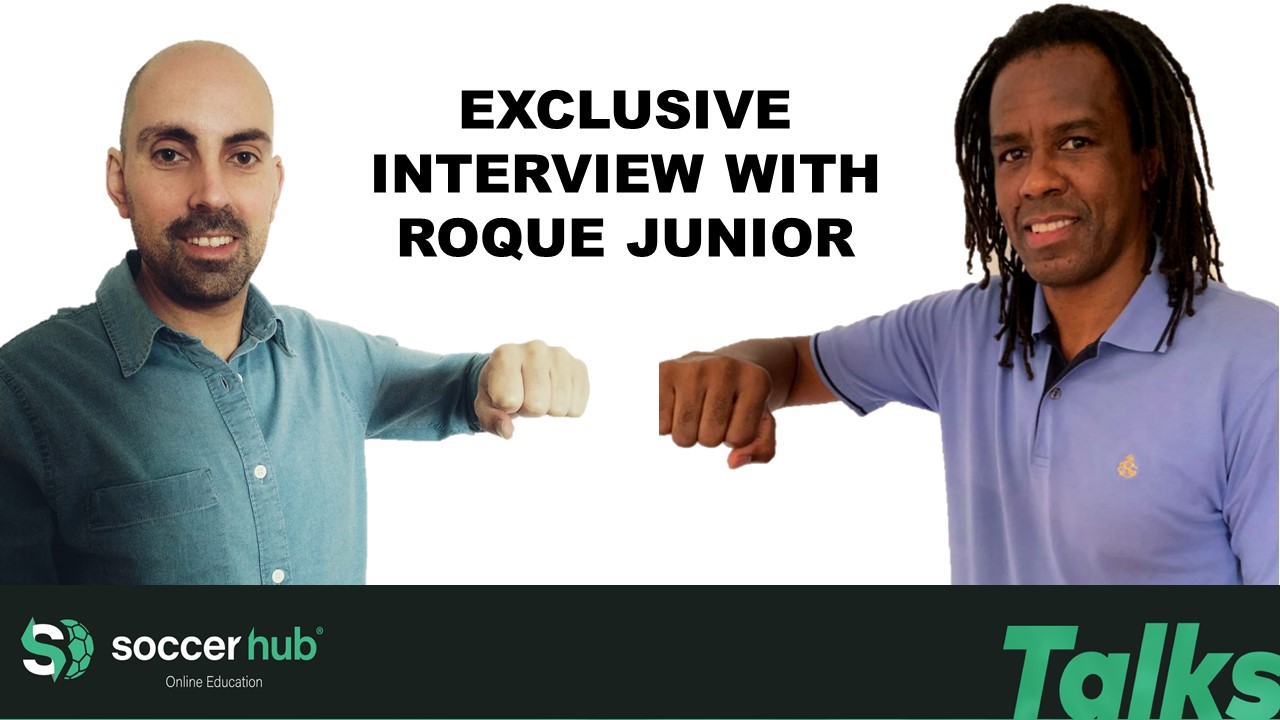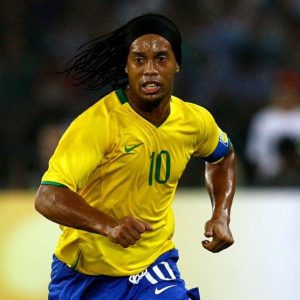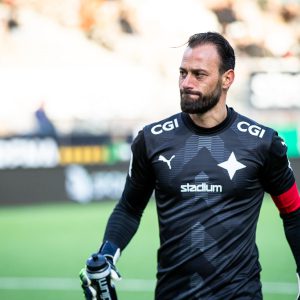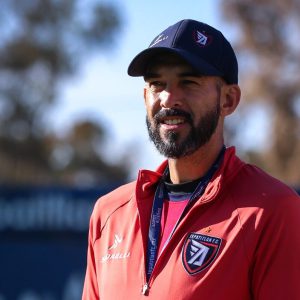

Rethinking Brazilian football as a whole
José Vítor Roque Júnior was part of the Brazillian winning squad at the 2002 FIFA World Cup, winner of the Copa Libertadores and the Champions League. Throughout his career, the former center-back has represented clubs such as AC Milan, Bayer Leverkusen, Leeds United and Palmeiras. Roque Júnior talks to us about his post-career steps and analyzes the current Brazillian football scene. Read the full interview conducted by Nuno Milheiro below.
After a short adventure at the modest Brazillian club Ituano, Roque Júnior ended his career as a footballer in 2010. The post-career period, however, was prepared in time and he had the opportunity to invest in his education in several football-related areas.
I was still playing in Germany when I have decided to found a club in Brazil called Futebol Clube Primeira Camisa. My initial idea was to develop an academy.
We started only with the under 15, 17, and 20 teams for about three years or so. Then, when I returned to Brazil, we started the professional team. During that period, I felt the need to improve theoretically, so I started taking some management courses, in 2011 and 2012. Afterward, I also attended performance analysis and scouting courses, and the coaching course at the Brazilian Football Confederation. In 2014, I was invited to collaborate in the management structure of Paraná. I also received an invitation from Felipão [Luiz Felipe Scolari] to work with him as a performance analyst at the 2014 FIFA World Cup. When I was closer to the pitch, another invitation to be a coach at XV de Piracicaba came. In conclusion, during these last 11 years, I accumulated experiences in management, training, performance and market analysis”, he said.
The transition from coach to technical coordinator occurs in 2018 at Ferroviária and gave him a holistic view of football. “I have received an invitation from Ferroviária, a traditional club in São Paulo on the same level as those two clubs [XV de Piracicaba and Ituano]. I have worked there for a year and seven months. At the same time, I returned to Italy to finish the UEFA A course, concluded the UEFA Pro License course in Brazil and attended other management courses. Nowadays, we have the Brazillian University of Football, which is helping a lot in spreading a unique vision of football as a whole, with a more macro perspective. There is more and more information now. The point is to obtain wisdom and applying knowledge at the right time. This last opportunity I had directed me to the technical coordination area”.
He has revealed that experiencing new contexts in renowned clubs contributed significantly to his personal and professional growth.
When you go to a new country, you have to adapt. I think that is important because it makes you grow up: interacting with new cultures, new people and new habits. Today I see myself as a different person. The world is not just what we live in the present, in the place where we are”.
Currently, it is possible to see former renowned players such as Pep Guardiola, Andrea Pirlo, Diego Simeone or Antonio Conte training top clubs. However, the same has not been the case for Brazillian athletes. “There are multiple factors. You stay out of your country for a long time and the family issue also influences [the decision]. I know some who do not want to go back to that life of moving from country to country. Some want to relax a bit. There are [top] players with whom I have played at AC Milan who did not become coaches, for example. Alessandro Costacurta is a commentator, Kakha Kaladze was a politician in his country [Georgia] and Serginho is a football agent. In Europe, they tend to give more importance to players who have reached a high level. It would be difficult to the case of Andrea Pirlo in Brazil, for example. Being a top player in Europe has greater relevance to assume a position later, whatever it may be after a career”.
By comparison, there are countless examples of former Brazilian top players in management positions such as Leonardo at Paris Saint Germain, Edu Gaspar at Arsenal, and Juninho Pernambucano at Olympique Lyonnais. “The identification with a certain club helps a lot. In Brazil, it is a bit harder to have that opportunity, even if you have a strong relationship with a club for many years. In the particular case of coaches, things get a little more complex. For a Brazilian coach to work in Europe, he must have a UEFA course. In the same way as we accept coaches from other nationalities with a UEFA course, it would be crucial to have this agreement so that the European market could be further opened. This does not help Brazilian coaches to build a career outside Brazil”.
Roque Júnior believes that it is vital to create favorable conditions for the adaptation of Brazilian players to the European context but their unique characteristics should be preserved unconditionally.
I have improved a lot in Italian football, but I did not lose what I already had. A coach has to comprehend the player and how he can use his quality to help him develop. Coaches like Pep Guardiola, José Mourinho, Jürgen Klopp and Carlo Ancelotti look for the best in every single player and try to adapt their ideas to their characteristics.
In Brazil, we still have good players, but we do not have quantity as we did in quality. However, we have players who make a difference on the pitch”.
A few decades ago, Brazilian players necessarily had to prove their quality to get a chance at a European club. At this point, emerging talents are promptly recruited by top clubs. “Previously, big clubs were not interested in our young players. We had to play in Brazil and in the national team to join a top club in Europe. Rivaldo had already won the Brasileirão at Palmeiras and went to Deportivo de La Coruña. He did not immediately go to Barcelona. The football market as a whole has changed. On the other hand, European teams maintain the desire for signing talented Brazilian players. They come here to buy 18, 19 and 20-year-old players who are still not decisive in Brazil for great transfer values. That shows that we still have great players here”, he considered.
The former center-back claims that the amount of talent that exists today in Brazil compared to his generation is lower. “If we think about Brazil in 2002, for example, we had Rivaldo, Ricardinho, Alex, Djalminha, Zé Roberto… For this position [offensive midfielder], we had three or four great players. This is no longer our reality. Internally, we have to understand how we can develop players again from an early age”.
At the 2014 FIFA World Cup semi-final against Germany, many consider that the host Brazil presented a markedly tactical approach, relegating the technical part that has always been part of its identity. This bitter match continues to leave its marks and contributed to a paradigm shift in Brazilian football. “Talking about just one game is pretty hard. Football has changed. We had to find a path that would allow us to progress without compromising our distinctive characteristics. We are doing this internally, without losing what we are as a nation. We started rethinking Brazilian football as a whole and it is not just in training. It is in the regulations, the clubs’ organization, the financial dimension and the competitive calendar”, he concluded.
Get to know more about Soccer HUB!
Follow us on Facebook!
Leave A Reply Cancel reply
You must be logged in to post a comment.
Categories
Latest Courses
-
9 Lessons
-
1 Lesson
-
6 Lessons
You May Also Like
-
-
August 1, 2022
-
-
June 3, 2022
-
-
May 27, 2022






1 Comment
Excellent